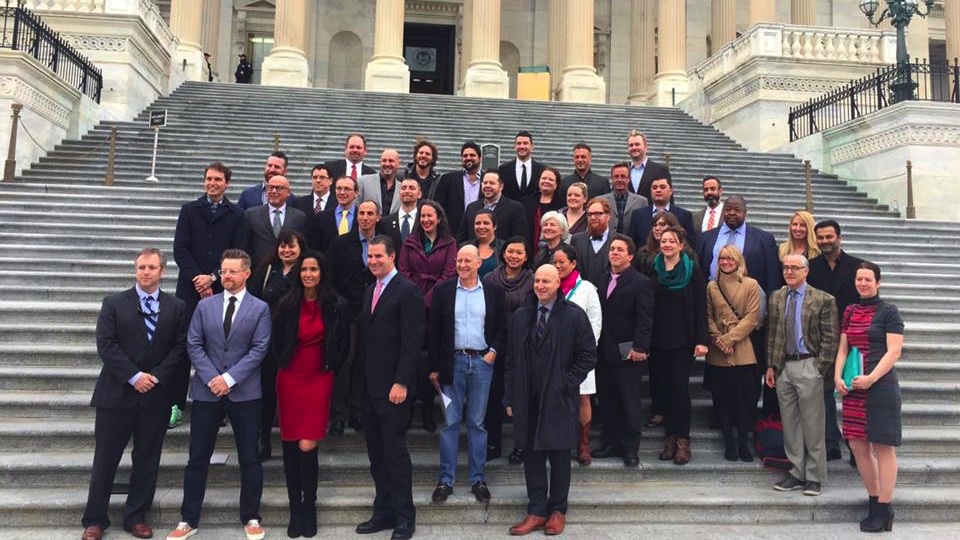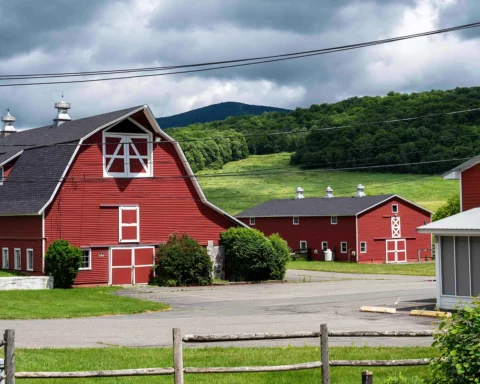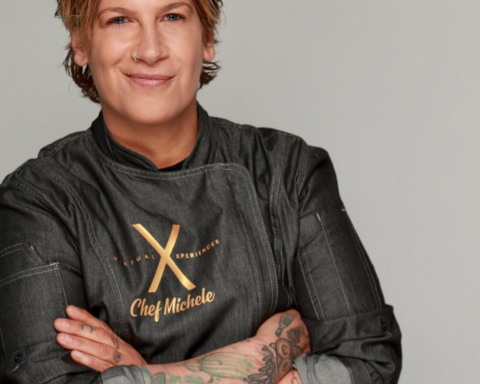Podcast (plenty): Play in new window | Download
Subscribe: RSS
This episode of Plenty is unusual for the unique, unfiltered look it provides into one way advocacy can result in changes to food policy. We sat in on the September “Chef Power Hour,” a monthly meeting of the minds hosted by the Chefs Collaborative and heard some thought-provoking ideas on how chefs, a set of professionals intimately concerned with food issues, can exert influence over the legislative and regulatory processes that govern the production, distribution, and preparation of our meals.

How can chefs influence food policy? What data and/or actions help politicians tune into pressing issues like food waste, sustainable seafood, hunger, and more?
During this one-hour phone call, chefs and experts dove into strategies and tactics for elevating the national conversation around food – especially in this election season. The goal was to send people away from the call with the information and tools needed to make a difference this fall, and all year-round.
FEATURING:
Claire Benjamin DiMattina (Food Policy Action)
Celinda Lake (Lake Research Partners)
Chef Evan Mallett (Black Trumpet, Chefs Collaborative Board Member, Author of Black Trumpet: A Chef’s Journey Through Eight New England Seasons)
Katherine Miller (James Beard Foundation)
About the Chefs Collborative
Chefs Collaborative is a national nonprofit network with a mission to inspire, educate, and celebrate chefs and food professionals building a better food system.
Considerations when thinking about food policy
Participants were asked to consider information provided in the documents below as they formulated their responses to the question of how to influence food policy.
[gview file=”https://www.greylockglass.com/wp-content/uploads/2016/10/POTU_Call-to-Action.pdf” height=”400px” save=”1″]
Research conducted by Lake Research Partners & Bellwether Research and Consulting, below, indicates that attitudes in this country are highly favorable towards a change from business as usual.
Food Policy Research Findings
While food is seen as widely available in America, voters across the spectrum think the weakness in our food system is that healthy foods are not as widely available or as affordable, and that is a problem.
Voters say their top priority for changing the food system is to make healthy foods more affordable (45 percent), followed by increasing education on healthy food choices so that people have more information when making food decisions (23 percent).
They express strong concerns around the food system’s impact on the health of children. Eighty-one (81) percent of voters are very concerned that one third of children today will develop type-2 diabetes. Sixty-nine (69) percent are very concerned that today’s children are expected to live shorter lives than their parents. In focus groups, these statements were a powerful call to action for policies that would aid access to healthy foods for all families, regardless of their zip code.
People also express strong concerns around the disconnect between government recommendations and the policies behind them. They believe special interests and money in politics influence the system. Forty-nine (49) percent of voters are very concerned (81 percent are very or somewhat concerned) that the Federal government recommends a diet of 50 percent fruits and vegetables while less than 1 percent of farm subsidies go toward fruits and vegetables. Voters express similarly strong concerns that the federal government does not provide enough support for sustainable farming practices that can meet our needs while protecting the environment.
Voters also express concerns about workers in the food industry. Forty-one (41) percent of voters are very concerned (75 percent are very or somewhat concerned) that five of the eight worst paying jobs in America are in the food system.
In this context, there is a strong appetite for change. Large majorities of voters across party lines favor government incentives to encourage sustainable farming practices that protect the environment. Overall 75 percent favor this, including 62 percent who strongly favor. By party, 85 percent of Democrats, 77 percent of independents, and 62 percent of Republicans favor incentives to encourage sustainable farming.
Half (50 percent) of voters favor limiting government subsidies to the largest farm businesses, including 49 percent of Democrats, 53 percent of Independents, and 50 percent of Republicans. Thirty-six (36) percent of voters oppose limiting government subsidies.
Voters want change that makes healthy foods more affordable. They were read the following two statements and asked which is closer to their opinion:
53 percent agreed that: “Too many Americans cannot afford healthy food in their communities. We need to change policies so that we make healthy and nutritious foods more affordable for every American, regardless of their zip code.”
31 percent agreed that: “Every American has a choice when they shop for groceries or order at a restaurant. We provide an abundance of food, and we need to let Americans, not the government, decide what foods they want to buy, cook, and eat.”
Sixty-six (66) percent of Democrats and 54 percent of independents agreed with the first statement, while 50 percent of Republicans, who place a premium on individual freedom and favor a more limited role for government, agreed with the second statement. Fourteen (14) percent of all voters volunteered that they agree with both statements.
These issues prove to be very salient for key groups in the 2016 elections. Younger voters, African Americans, Latinos, and unmarried women are particularly supportive of changes to the food system that would promote better access to healthy foods.
These voters favor government incentives to encourage sustainable farming (with 76 percent of voters under 30 who favor, 87 percent of voters between the ages of 30 and 39, 85 percent of African Americans, 82 percent of Latinos, and 74 percent of unmarried women).
They favor limits on government subsidies to the largest farmers (with 55 percent of voters under 30 who favor, 65 percent of voters between the ages of 30 and 39, 54 percent of African Americans, 54 percent of Latinos, and 53 percent of unmarried women).
And they believe we need to change policies so that we make healthy and nutritious foods more affordable (with 58 percent among of voters under 30 who agree, 62 percent of voters between the ages of 30 and 39, 66 percent of African Americans, 65 percent of Latinos, and 50 percent of unmarried women).
Populist messaging around the food system finds strong resonance across party lines, and in particular with younger voters, African Americans, and Latinos. Overall, 87 percent of voters find the following statement convincing, including 60 percent who find it very convincing.
“Our current food policy isn’t focused on our health, it is focused on money. We put profits before our health and continue subsidies that help keep junk food cheap and drive up chronic health problems, like obesity, diabetes, and even cancer. The goal of our food system should be to produce healthy, affordable food that is accessible for all Americans, that protects our health, our workers and our environment, provide humane treatment of animals, and that will protect our local farmers and keep them farming their land. We need policies that recognize that healthy food is a necessity, not a privilege.”
By party, 92 percent of Democrats find it convincing (69 percent very convincing) as do 87 percent of independents (60 percent very convincing), and 78 percent of Republicans (50 percent very convincing).
Lake Research Partners and Bellwether Research and Consulting conducted focus groups in August of 2015 with white married mothers and white unmarried women in Des Moines Iowa, white suburban mothers and African American mothers in Raleigh North Carolina, and white suburban fathers and Latina mothers in Denver Colorado. Participants were recruited to reflect a mix of partisanship and education levels.
Lake Research Partners and Bellwether Research and Consulting designed and administered a national survey of 1000 registered likely 2016 voters conducted by telephone from September 16th through 22th , with 35 percent reached by cell phone. The margin of error for survey is +/ -3.1% at the 95% confidence interval.








